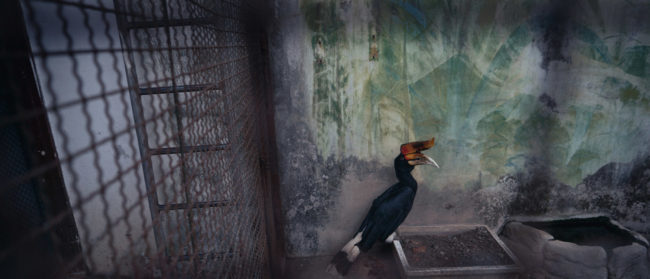On almost any given Saturday, just as the sun peeks over the horizon deep in southern Thailand, entrepreneur Nattapong Nithi-Uthai can be found at perhaps the best spot in town to watch the Pattani river slowly flow into the Gulf of Siam.
It has the makings of a beautiful spot, but Nithi-Uthai isn’t there to take in the view. He and some dedicated friends go to pick up trash, endless loads of it heaped on the banks. The group first selected this site in 2016 for its natural beauty and immediately set out to remove a mound of garbage dumped there by local restaurants.
“We actually took three months to get rid of that. It was full of maggots and everything. It was real trash, not ocean trash. You cry because it’s too much,” Nithi-Uthai told the Globe. “The point when you clean maggots out of a mountain of trash, something happens inside of you.”
Instead of dwelling on the horrible smell, he thought that someone might pay him, if he could just create a valuable product out of all the freely available trash in town.
The breakthrough came after he and a team at the Prince of Songkhla University in Pattani (PSU) created sandals from upcycled flip-flops collected at the beach. They used those sandals to launch Tlejourn in 2015, a startup now turning the waste problem into profit.
Now Tlejourn is not only making profits but inspiring other companies – from young Thai fashion designers to large corporations – to also try and use waste as a raw material.
In the process, the startup is helping to prove the concept of the so-called circular economy, one that prioritises a more intensive use of recycled materials over new raw materials. A production cycle that uses waste, rather than creating new garbage, might help solve the garbage problem currently destroying Thailand’s ecosystems.
“It’s new, the idea that when you finish using all types of products, you should think of the producer when you want to discard it. We can recycle it,” said Nithi-Uthai.
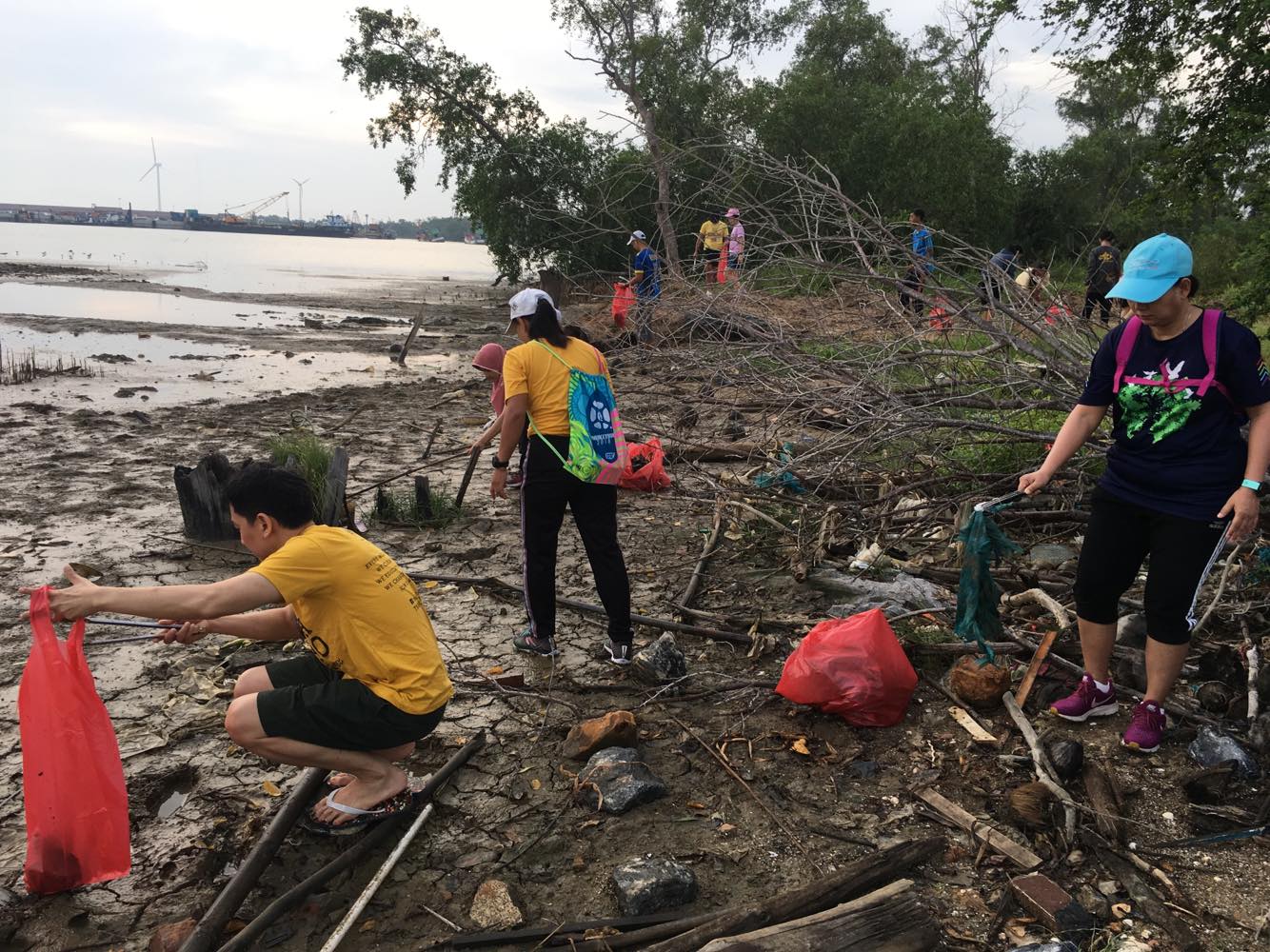
According to a 2019 government report, Thailand generated 27.8 million tonnes of solid garbage that year, about the weight of 15 million cars. Offshore, some 2 trillion pieces of plastic trash float in Thai waters, with Thai activists still struggling to ban waste imports from other countries like China and the US.
Waste as a free resource was the idea has guided Tlejourn from the start, when in 2015 Nithi-Uthai and a group of students shredded thousands of beached flip-flops, mixed the resulting bits of foamed plastic together with a glue-like polyurethane liquid and then squeezed the goop in a mechanical press to form brand-new flip-flops. After students posted pictures on social media, strangers began calling asking how they could buy a pair.
“Right after that we established our operation and took crowdfunding orders – about 100 pairs of flip-flops [in total],” said Nithi-Uthai.
Since then Tlejourn has grown, without any outside funding, from a student project into a small, legally registered company. In documents shared with the Globe, Tlejourn earned about $37,800, or 1.18 million baht, in revenue for 2020. That’s a significant sum for Pattani, one of Thailand’s poorest provinces where in 2018 an estimated 39% of the population survived on less than 1,586 baht ($50.84) per month.
While Tlejourn doesn’t strive to be a Silicon Valley star, the young firm doesn’t want to be lumped in with non-profits who collect trash out of a sense of civic duty. Nithi-Uthai believes that if more companies would use trash as a raw material, less would be dumped into the ocean or landfills.
“I always have in mind, these things need to be turned into a product. Someone needs to pay me to turn this into a product,” he said.
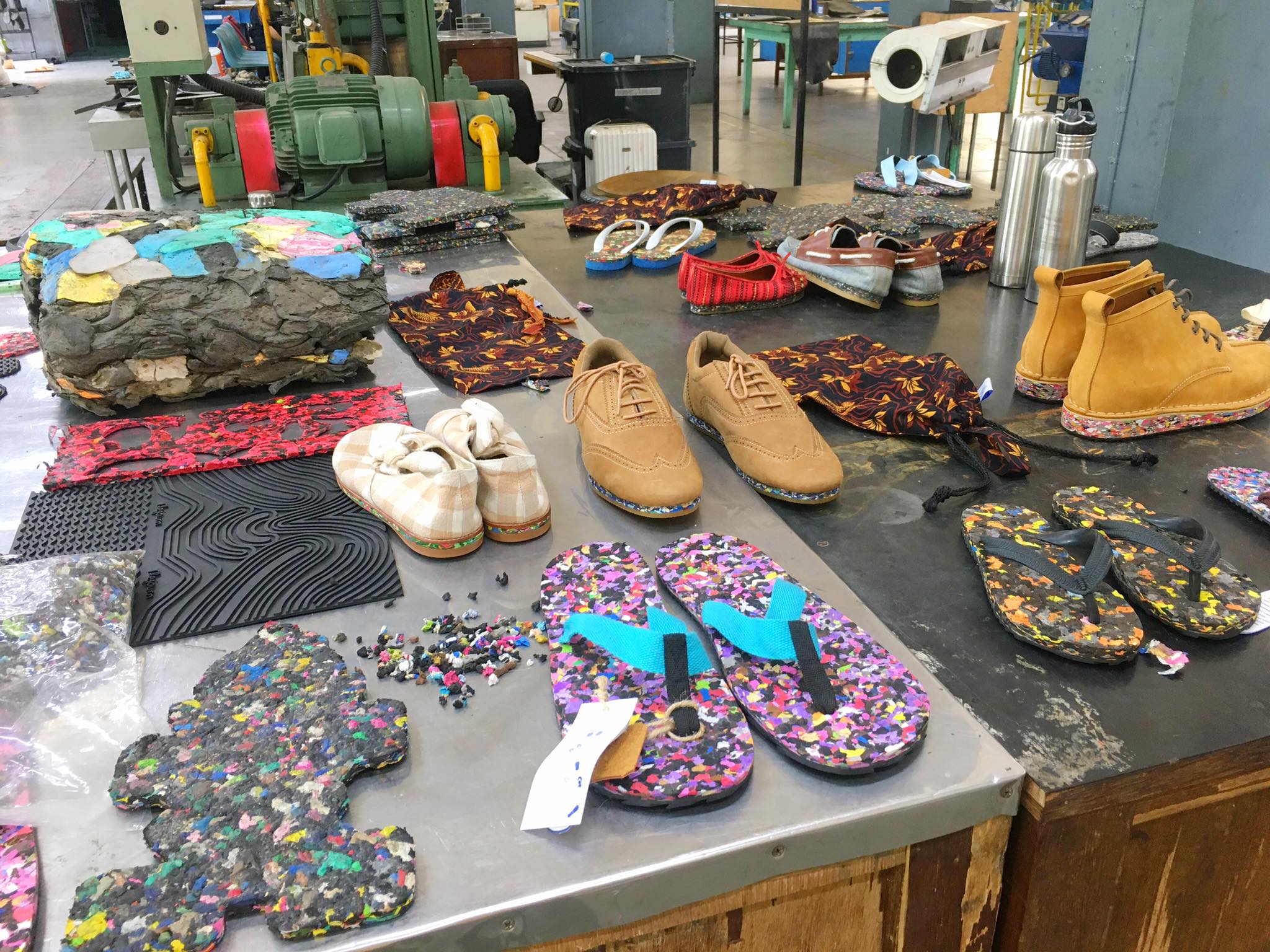
As questions of sustainability begin to more seriously shape economic growth, circular economy advocates such as the Ellen MacArthur Foundation, a UK-based charity, recommend making using waste cheaper and natural resources more expensive through taxation.
Such a policy could, if enacted in a place like Thailand, make it more expensive to simply throw things away, all the while encouraging the use of recycled materials. If residents had to pay a tax to throw old shoes in the garbage, they’d have a financial incentive to look for companies like Tlejourn who could take them for free, turn them back into useful products and save them from a landfill or washing into the sea.
Such an anti-waste policy doesn’t yet exist, but Tlejourn isn’t hurting for lack of trash. Padinya Aree is Tlejourn’s point man when it comes to collecting trash and has been with the project since the beginning. Civic trash pick up groups began calling him, as word of Tlejourn’s model has spread.
“If people send their trash to me, I welcome that,” Aree said. “But the ultimate dream of Tlejourn is that one day Tlejourn comes to an end, because there’s no more trash to make products from.
For now, the company’s business model is simple; Tlejourn’s four full-time employees collect and sort non-organic trash, working in cooperation with PSU, to store the waste and upcycle it into new shoe pads and soles. An all-female team in a nearby village works on a per-piece basis to glue shoe elements together and package new footwear in cloth bags for shipment.
Nithi-Uthai has referred to Tlejourn’s pricing system as an intentionally “zero-profit” model. The retail price a customer pays is split into thirds. One-third pays for admin and the recycling process, another third goes to the women’s group and the last is kept by the seller.
Nithi-Uthai purposely constructed a business model that makes an immediate positive financial impact for the village women’s group, many of whom wouldn’t have a job without Tlejourn. They can earn about $8 per day, approximately 15% of an average monthly income in Pattani Province.
“We [Tlejourn] only get one-third of the revenue but that’s enough,” Nithi-Uthai said, distancing himself from entrepreneurs who promise to help society after they get rich.
“Too many people are doing that, and if it worked then someone very rich would have solved all the problems already.”
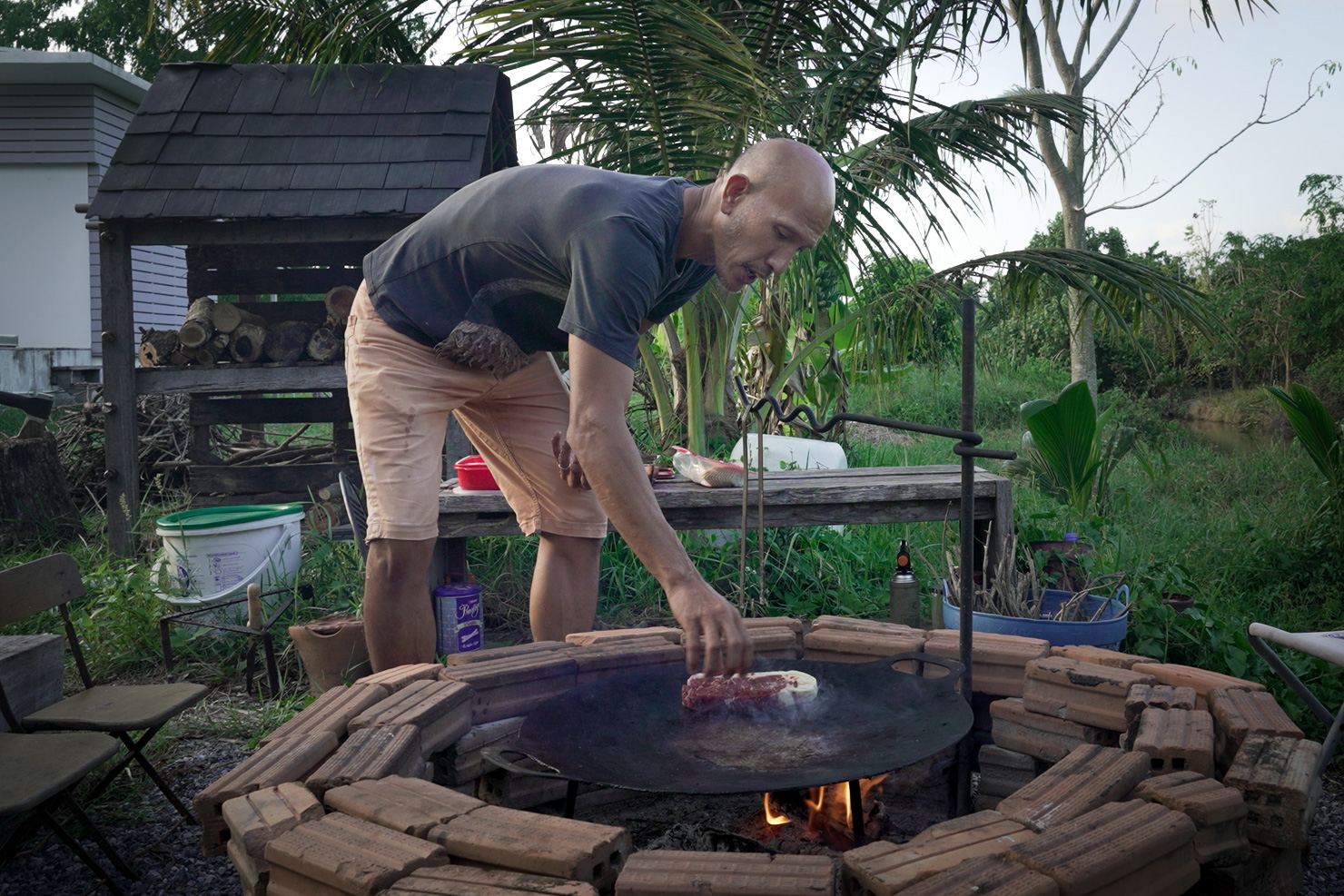
Tlejourn is inspiring other Asian companies to try and make money from waste. In 2019 they assisted Thai footwear giant, Nanyang, to produce that company’s first-ever limited-run flip-flop made from waste. Under a new brand name “KHYA” (garbage in Thai), Nanyang sold 27,886 pair of sandals at 399 baht ($12.79) a pair.
The experiment wasn’t sustainable due to the costs involved in launching the new brand, as well as retooling needed at Nanyang’s production lines. Nevertheless, Nanyang had originally only planned for a run of 1,000 to 2,000 sandals, so the strong demand proved to management that Thais are willing to purchase cleverly designed goods, even those made from trash.
Piya Sosothikul, a member of Nanyang’s board of directors, estimated in 2019 the company could reach profitability at a mass production run of 100,000 pairs at a price of $19.23 (an even 600 baht) a pair. Last year, Nanyang created a tote bag for dealers made from the company’s old vinyl advertising and is rumored to be crafting their first shoe made from recycled materials in an attempt to keep up with Nike and Adidas who already do.
If people send their trash to me, I welcome that. But the ultimate dream of Tlejourn is that one day Tlejourn comes to an end, because there’s no more trash to make products from
Nithi-Uthai and his team have also cooperated on one-off footwear projects with a number of brands in Asia, such as MUZINA, CC-OO, SODA and SRETSIS, as well as the paddleboarding company Starboard. The Tlejourn team used the Covid-19 disruption to design a new, active model sandal with velcro straps over the ankles and toes.
Beyond footwear, Tlejourn’s team is always tinkering, trying out new products and hoping for a spark of interest from the public. They’ve tried turning a stack of old cigarette lighters into new flooring, crushed bottles into coloured sand as an art supply, and even produced a Tlejourn skateboard.
Most recently, Tlejourn produced countertops for a new retail store in Bangkok run by the Swiss company FREITAG. FREITAG’s own products are upcycled from PVC collected from transport trucks in Europe. In keeping with that theme, Tlejourn’s team made countertops from shredded truck tires.
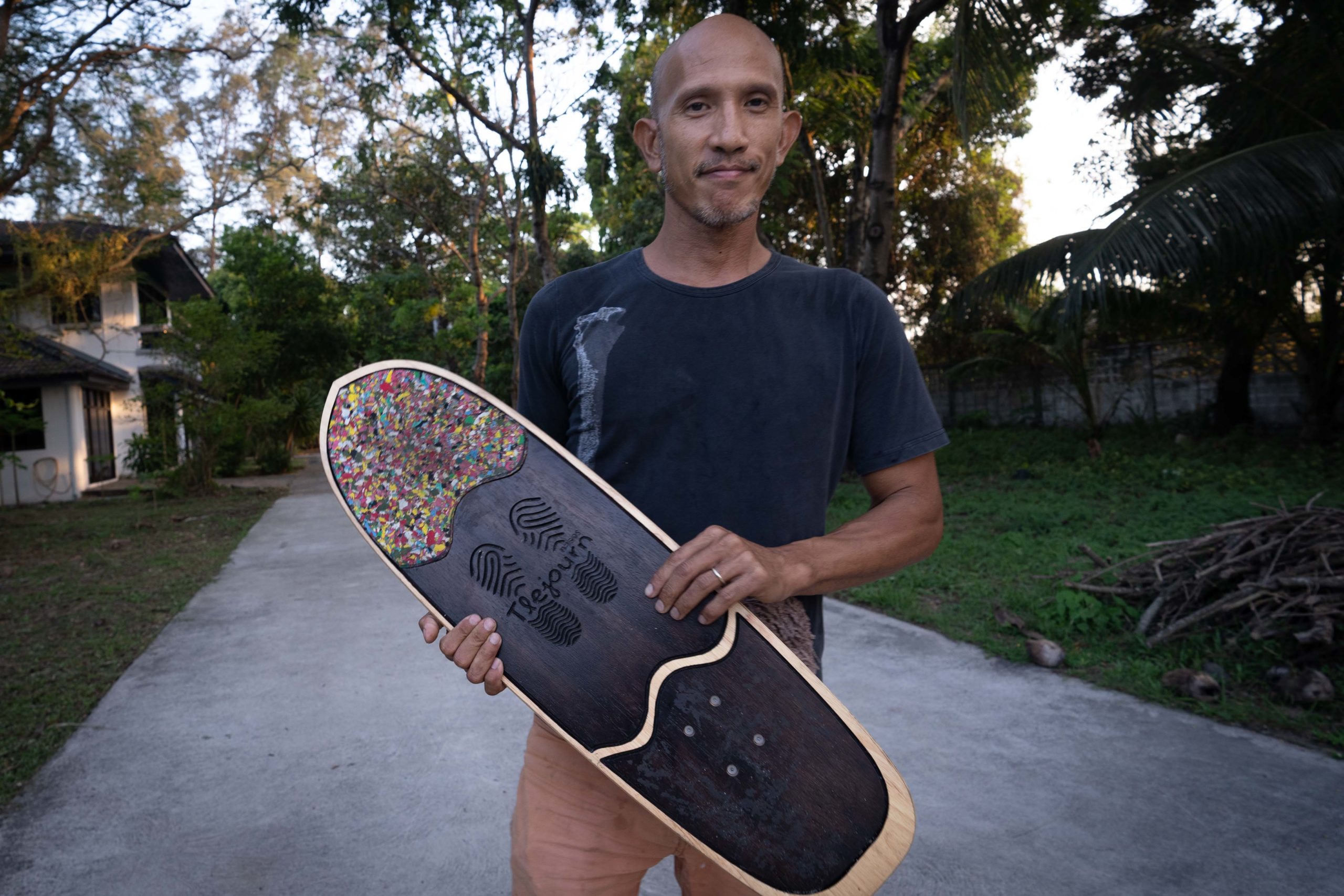
On an April evening, as Nithi-Uthai prepared to grill a steak on his homemade grill – itself made from old bottle caps, upcycled tires and recovered wood – he thought about the Pattani River vantage point.
“It’s become our teaching and learning place,” he said, referring to the scores of students and Pattani citizens who come usually just once or twice to pick up garbage.
Five years after Nithi-Uthai and his friends started picking up trash, their vantage point on the river has been improved. But they still come because new garbage – used tubes of Colgate toothpaste, empty Fanta bottles, single-use shampoo containers and countless straws – is constantly floating down the river, lodging in the muddy sand.
But big garbage problems require solutions that can scale, something that a volunteer network can’t always do. Nithi-Uthai believes Tlejourn makes its greatest impact by drawing awareness to the Thai trash problem and by pointing to the circular economy as a solution.
The country can’t be cleaned up simply by bagging garbage alone, he says. Not even the lookout point can be cleaned this way.
“I don’t think with like 10 people every day even in our lifetime we will be able to finish [cleaning lookout point], you know. I don’t think so.”

